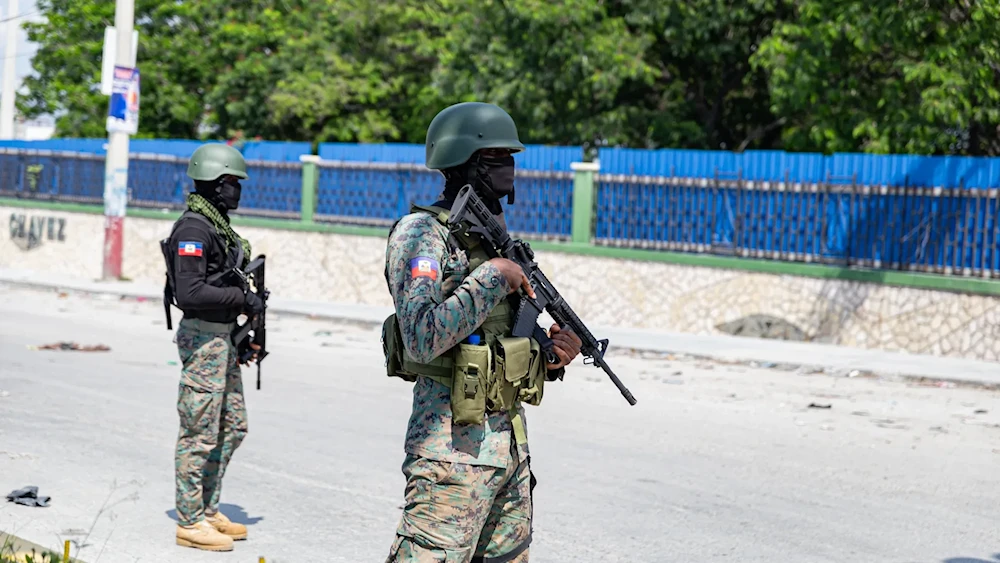Haiti's security situation deteriorates as gangs advance in capital
The UN humanitarian coordinator for Haiti says the police are struggling to repel advancing gangs.
-

Haitian soldiers guard a checkpoint after armed gang members exchanged gunfire with police and soldiers around the airport in Port-au-Prince, Haiti, on March 6, 2024. (AFP)
Security conditions in Haiti are deteriorating further as gangs make advances within the capital, Port-au-Prince, amid a deadlock in negotiations to establish a transitional government.
Meanwhile, police forces are struggling to repel the gangs' progress, with 80 percent of the capital and parts of the countryside reportedly under gang control.
"We see people coming in with gunshot wounds from many areas around Port-au-Prince," said Ulrika Richardson, the UN humanitarian coordinator for the Caribbean country.
The UN Security Council called on all countries to actively enforce the existing arms embargo on Haiti, amid "grave concern at the illicit flow of arms and ammunition into Haiti that remains a fundamental factor of instability and violence."
Read more: Haiti's main port closes as US presses for 'urgent' transition
Amid Haitian Prime Minister Ariel Henry's visit to Kenya on February 29 to negotiate the deployment of foreign forces to combat organized crime in Haiti, gang violence broke out in downtown Port-au-Prince, demanding that the premier step down. Despite Henry announcing his resignation last Tuesday, the gangs aim to prevent his return to Haiti.
US troops may be stationed in Haiti
Kenya had expressed last July its readiness to deploy up to 1,000 personnel to Haiti, and lead a UN-backed force to the country. But Kenya conditioned that a political transition be secured before it could carry out this action.
The US Southern Command also acknowledged on Tuesday that US troops might be stationed in Haiti, going against previous vows of no boots on the ground.
Read more: How the US continues to orchestrate chaos in Haiti: UnHerd
Additionally, the United States revealed last week that it will deploy several naval vessels to Haiti, claiming that this measure is in response to a potential event of mass migration caused by the worsening security situation in the country.
The European Union Foreign Affairs Council has also called for the deployment of a foreign force to the Caribbean country.
"We also discussed recent developments in Haiti. We support a viable, inclusive, and sustainable Haiti and a lead political transition. We emphasize the importance of deploying the multinational security support mission authorized by the United Nations Security Council," Josep Borrell, the EU's foreign policy chief, said during a council meeting in Brussels last Monday.

 3 Min Read
3 Min Read








